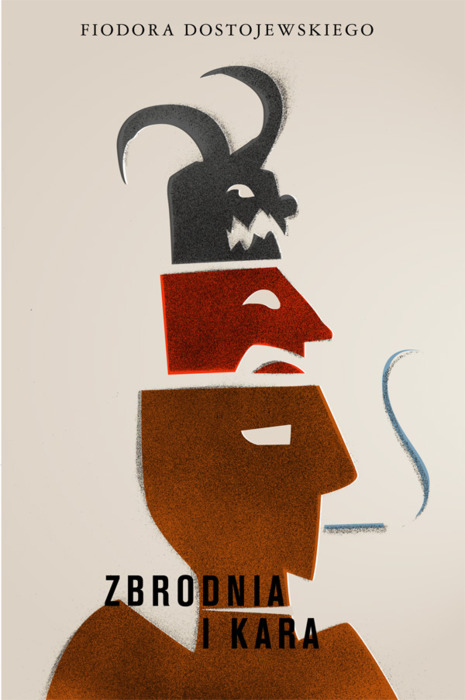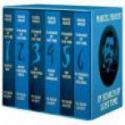 |
| Paul Auster |
Paul Auster's Top Ten List

1. Don Quixote by Miguel de Cervantes (1605, 1615). Considered literature’s first great novel, Don Quixote is the comic tale of a dream-driven nobleman whose devotion to medieval romances inspires him to go in quest of chivalric glory and the love of a lady who doesn’t know him. Famed for its hilarious antics with windmills and nags, Don Quixote offers timeless meditations on heroism, imagination, and the art of writing itself. Still, the heart of the book is the relationship between the deluded knight and his proverb-spewing squire, Sancho Panza. If their misadventures illuminate human folly, it is a folly redeemed by simple love, which makes Sancho stick by his mad master “no matter how many foolish things he does.”

2. War and Peace by Leo Tolstoy (1869). Mark Twain supposedly said of this masterpiece, “Tolstoy carelessly neglects to include a boat race.” Everything else is included in this epic novel that revolves around Napoleon’s invasion of Russia in 1812. Tolstoy is as adept at drawing panoramic battle scenes as he is at describing individual feeling in hundreds of characters from all strata of society, but it is his depiction of Prince Andrey, Natasha, and Pierre —who struggle with love and with finding the right way to live —that makes this book beloved.

3. Moby-Dick by Herman Melville (1851). This sweeping saga of obsession, vanity, and vengeance at sea can be read as a harrowing parable, a gripping adventure story, or a semiscientific chronicle of the whaling industry. No matter, the book rewards patient readers with some of fiction’s most memorable characters, from mad Captain Ahab to the titular white whale that crippled him, from the honorable pagan Queequeg to our insightful narrator/surrogate (“Call me”) Ishmael, to that hell-bent vessel itself, the Pequod.

4. Crime and Punishment by Fyodor Dostoevsky (1866). In the peak heat of a St. Petersburg summer, an erstwhile university student, Raskolnikov, commits literature’s most famous fictional crime, bludgeoning a pawnbroker and her sister with an axe. What follows is a psychological chess match between Raskolnikov and a wily detective that moves toward a form of redemption for our antihero. Relentlessly philosophical and psychological, Crime and Punishment tackles freedom and strength, suffering and madness, illness and fate, and the pressures of the modern urban world on the soul, while asking if “great men” have license to forge their own moral codes.

5. In Search of Lost Time by Marcel Proust (1913–27). It’s about time. No, really. This seven-volume, three-thousand-page work is only superficially a mordant critique of French (mostly high) society in the belle époque. Both as author and as “Marcel,” the first-person narrator whose childhood memories are evoked by a crumbling madeleine cookie, Proust asks some of the same questions Einstein did about our notions of time and memory. As we follow the affairs, the badinage, and the betrayals of dozens of characters over the years, time is the highway and memory the driver.

6. Ulysses by James Joyce (1922). Filled with convoluted plotting, scrambled syntax, puns, neologisms, and arcane mythological allusions, Ulysses recounts the misadventures of schlubby Dublin advertising salesman Leopold Bloom on a single day, June 16, 1904. As Everyman Bloom and a host of other characters act out, on a banal and quotidian scale, the major episodes of Homer’s Odyssey —including encounters with modern-day sirens and a Cyclops —Joyce’s bawdy mock-epic suggests the improbability, perhaps even the pointlessness, of heroism in the modern age.

7. The Scarlet Letter by Nathaniel Hawthorne (1850). Hester Prynne is a sinner in the hands of seventeenth-century Puritans. Forced to wear the letter “A” for adultery, she is publicly disgraced and shunned. Despite her condemnation, Hester refuses to reveal the identity of her lover. Her husband, Roger Chilling worth, returns unexpectedly and seeks revenge. Chillingworth is a torment to the guilt-stricken minister, Arthur Dimmesdale, as is Pearl, the child born of Hester and Dimmesdale’s adultery. Ultimately, it is the fallen lovers, not the Puritans, who come to understand the nature of sin and redemption.

8. The Castle by Franz Kafka (1926). K. has been summoned to work as a land surveyor at a giant castle, which he is never allowed to enter. As his confusion grows, he breaks a series of laws he cannot understand. Such is the stuff of dreams —and of Kafka’s final novel, which uses K.’s strange plight to portray the absurd, nightmare logic of the bureaucratic state.

9. Molloy, Malone Dies, and The Unnamable, a trilogy by Samuel Beckett (1951–54). Like the runner’s high or Zen meditation, Beckett’s opus yields the transcendence that succeeds tedium and pain. The trilogy chronicles a descent into living death by three narrators: vagabond, cripple, misfit. These characters are by degrees banished from the landscape, stripped of their paltry possessions, thrown back on the scatological world of the body, and ultimately confined to the madhouse of their heads, where language alone sustains and betrays them. Beckett’s trademark black humor and the stubborn, paradoxical endurance of these voices lighten a terminally bleak vision.

10. Tristram Shandy by Laurence Sterne (1759–67). Sterne promises the “life and opinions” of his protagonist. Yet halfway through the fourth volume of nine, we are still in the first day of the hero’s life thanks to marvelous digressions and what the narrator calls “unforeseen stoppages”—detailing the quirky habits of his eccentric family members and their friends. This broken narrative is unified by Sterne’s comic touch, which shimmers in this thoroughly entertaining novel that harks back to Don Quixote and foreshadows Ulysses.


No comments:
Post a Comment